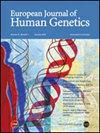The utility of next generation sequencing targeted multigene panels in the Adult Neurogenetic Clinic at Tygerberg Hospital, South Africa
IF 4.6
2区 生物学
Q2 BIOCHEMISTRY & MOLECULAR BIOLOGY
引用次数: 0
Abstract
Next generation sequencing (NGS) based tests have become first-line investigative modalities in adult neurogenetic clinics. Studies in high-income countries (HICs) show that NGS is cost-effective and reliable in diagnosing adult neurogenetic disorders (NGDs). African populations harbour vast genomic diversity, but there is limited knowledge on the molecular basis of NGDs affecting these populations due to lack of access to the necessary technology. The primary objective of this retrospective study was to describe the clinical utility of NGS panels in an African low-middle income country (LMIC). It included data of 74 adult participants seen at the multidisciplinary neurogenetic clinic at Tygerberg Hospital, South Africa, over a 4 – year period. Forty-three symptomatic index cases underwent NGS panel testing, while 31 relatives received targeted familial variant testing based on specific indications relevant to each case. Twenty-two different disease group-specific NGS panels were requested, spanning the NGD phenotypic spectrum. The diagnostic yield (DY) in index cases was 39.5% (17/43). Four relatives were clinically affected, and all tested positive for the familial-specific variant. This study demonstrated the DY achieved with NGS testing in an LMIC adult neurogenetic cohort, was comparable to DYs previously reported in HICs. These results argue for the use of NGS panels as first-tier testing in resource constrained LMICs, to limit lengthy diagnostic odysseys and unnecessary investigations. A definitive molecular diagnosis enables evidence-based management, surveillance, genetic counselling, and familial variant screening for relatives. Lastly, it assists with enrolment into clinical trials focussed on the development of precision medicine.在南非Tygerberg医院的成人神经遗传学诊所,下一代测序靶向多基因面板的应用。
下一代测序(NGS)为基础的测试已成为一线调查模式在成人神经遗传学诊所。高收入国家(HICs)的研究表明,NGS在诊断成人神经遗传疾病(NGDs)方面具有成本效益和可靠性。非洲人口拥有巨大的基因组多样性,但由于缺乏获得必要技术的途径,对影响这些人口的NGDs的分子基础了解有限。本回顾性研究的主要目的是描述NGS面板在非洲中低收入国家(LMIC)的临床应用。该研究包括74名在南非Tygerberg医院多学科神经遗传学诊所就诊的成年人的数据,时间跨度超过4年。43例有症状的指标病例接受了NGS面板检测,31名亲属根据每个病例的具体适应症接受了有针对性的家族变异检测。要求22个不同疾病组特异性NGS小组,涵盖NGD表型谱。指标病例的诊断率为39.5%(17/43)。四名亲属在临床上受到影响,所有检测结果均为家族特异性变异阳性。该研究表明,在LMIC成人神经遗传学队列中,通过NGS检测获得的死亡时间与先前报道的HICs中的死亡时间相当。这些结果支持在资源有限的中低收入国家使用NGS面板作为一级测试,以限制冗长的诊断过程和不必要的调查。明确的分子诊断使循证管理、监测、遗传咨询和亲属家族变异筛查成为可能。最后,它协助注册进入临床试验的重点是精准医学的发展。
本文章由计算机程序翻译,如有差异,请以英文原文为准。
求助全文
约1分钟内获得全文
求助全文
来源期刊

European Journal of Human Genetics
生物-生化与分子生物学
CiteScore
9.90
自引率
5.80%
发文量
216
审稿时长
2 months
期刊介绍:
The European Journal of Human Genetics is the official journal of the European Society of Human Genetics, publishing high-quality, original research papers, short reports and reviews in the rapidly expanding field of human genetics and genomics. It covers molecular, clinical and cytogenetics, interfacing between advanced biomedical research and the clinician, and bridging the great diversity of facilities, resources and viewpoints in the genetics community.
Key areas include:
-Monogenic and multifactorial disorders
-Development and malformation
-Hereditary cancer
-Medical Genomics
-Gene mapping and functional studies
-Genotype-phenotype correlations
-Genetic variation and genome diversity
-Statistical and computational genetics
-Bioinformatics
-Advances in diagnostics
-Therapy and prevention
-Animal models
-Genetic services
-Community genetics
 求助内容:
求助内容: 应助结果提醒方式:
应助结果提醒方式:


